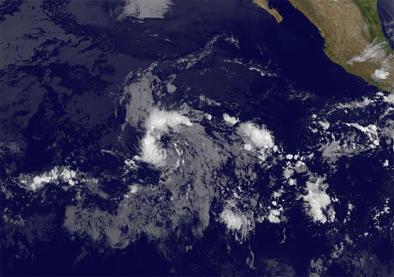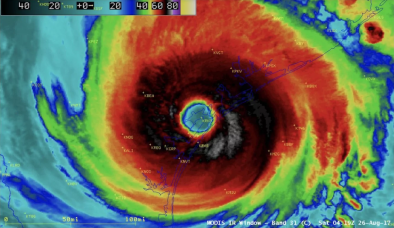Science Source
The Roles of Climate Change and Climate Variability in the 2017 Atlantic Hurricane Season
- States that the 2017 Atlantic hurricane season was extremely active with six major hurricanes, the third most on record
- States that the sea-surface temperatures (SSTs) over the eastern Main Development Region (EMDR), where many tropical cyclones (TCs) developed during active months of August/September, were ~0.96 °C above the 1901–2017 average (warmest on record): about ~0.42 °C from a long-term upward trend and the rest (~80%) attributed to the Atlantic Meridional Mode (AMM).
- States that the contribution to the SST from the North Atlantic Oscillation (NAO) over the EMDR was a weak warming, while that from El Niño–Southern Oscillation (ENSO) was negligible
- ENSO, the NAO, and the AMM all contributed to favorable wind shear conditions, while the AMM also produced enhanced atmospheric instability
- Finds that compared with the strong hurricane years of 2005/2010, the ocean heat content (OHC) during 2017 was larger across the tropics, with higher SST anomalies over the EMDR and Caribbean Sea
- Finds, on the other hand, the dynamical/thermodynamical atmospheric conditions, while favorable for enhanced TC activity, were less prominent than in 2005/2010 across the tropics
- The results suggest that unusually warm SST in the EMDR together with the long fetch of the resulting storms in the presence of record-breaking OHC may be key factors in driving the strong TC activity in 2017
Related Content
Headline

May 9, 2018 | Weather Underground | Category 6
An Early Start to Hurricane Season in the Eastern Pacific and Atlantic?
Science Source
| Geophysical Research Letters
Increasing Magnitude of Hurricane Rapid Intensification in the Central and Eastern Tropical Atlantic
Karthik Balaguru, Gregory R. Foltz, L. Ruby Leung
Headline

May 9, 2018 | Washington Post
Because of climate change, hurricanes are raining harder and may be growing stronger more quickly
Science Source
| Geophysical Research Letters
Attribution of cyclogenesis region sea surface temperature change to anthropogenic influence
N. P. Gillett, P. A. Stott, B. D. Santer


